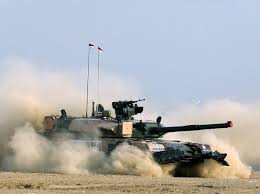
In a significant boost to India’s defence capabilities, the Defence Acquisition Council (DAC) has approved a series of high-value military procurement proposals worth ₹1.45 lakh crore. The meeting, chaired by Defence Minister Rajnath Singh, marks a substantial step towards modernizing the Indian Armed Forces with a focus on indigenous and future-ready technologies.
The centerpiece of the newly approved acquisitions is the procurement of Future-Ready Combat Vehicles (FRCVs). The Indian Army is set to integrate 1,770 of these advanced battle tanks into its fleet. The FRCVs are expected to cost around ₹60,000 crore and are designed to enhance the Army’s armoured corps with superior mobility, multi-layered protection, precision firepower, and real-time situational awareness. The new tanks are anticipated to remain in service for the next 35 to 45 years, ensuring a high level of battlefield lethality and agility.
The DAC’s approval also encompasses a broad range of other military hardware. Among the key acquisitions are air defence fire control radars, aircraft, and fast attack and offshore patrol vessels. These acquisitions are geared towards strengthening various facets of national defence, including air and maritime security.
In a move to bolster self-reliance, the DAC has ensured that 99% of the procurement value will be sourced from indigenous suppliers under the Buy (Indian) and Buy (Indian-IDDM) categories. This emphasis on domestic production aligns with the government’s broader strategy to boost the defence manufacturing sector and reduce reliance on foreign suppliers.
Additional provisions include the procurement of Dornier-228 aircraft and next-generation patrol vessels for the Indian Coast Guard. These assets will enhance the Coast Guard’s capabilities in surveillance, patrolling, search and rescue operations, and disaster relief.
The approved equipment also features forward repair teams for armoured and mechanised infantry platforms, which will be produced by Armoured Vehicles Nigam Limited. This development is part of a larger reform initiative aimed at modernizing the country’s defence manufacturing infrastructure.
The FRCV procurement is slated to proceed in three phases, ensuring a gradual and effective integration of this crucial technology into the Indian Army’s operational framework. This move is part of the government’s ongoing effort to enhance self-reliance in defence production, marked by a series of phased import bans on various weapons and components.
Sources By Agencies




